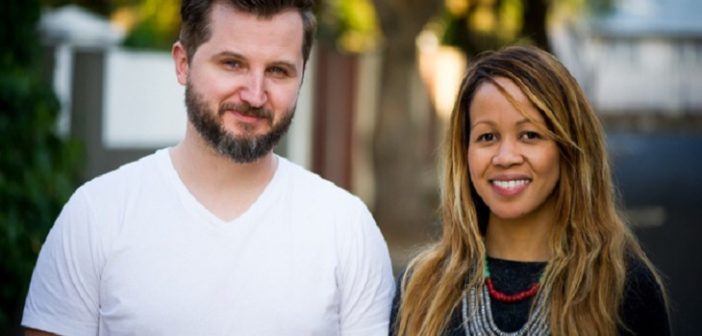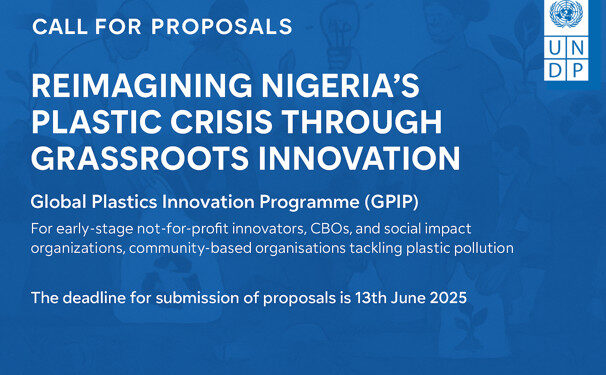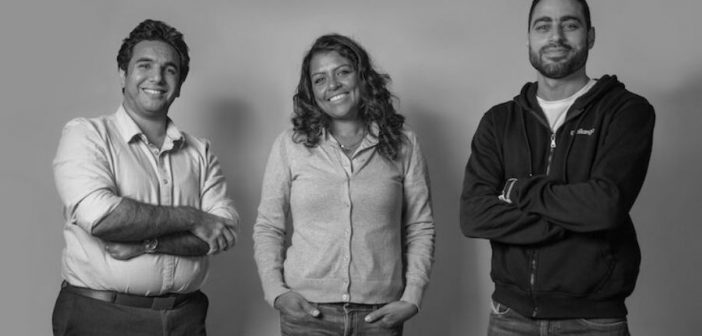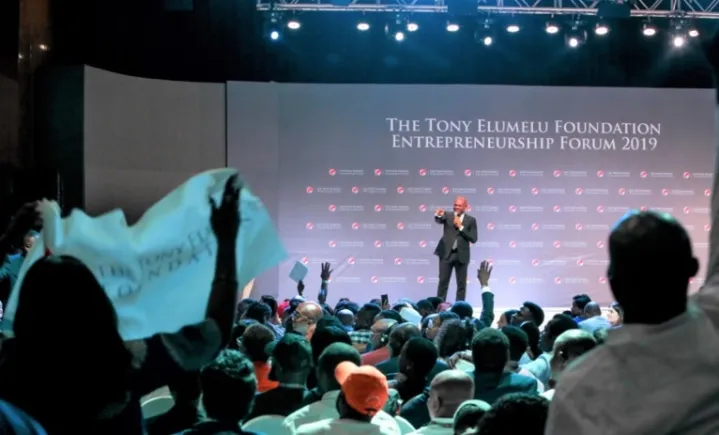How African Growth-stage Startups Fared in 2023 and What 2024 Holds

It was a challenging year for tech entrepreneurs in Africa. As previously projected, obtaining venture funding proved to be challenging; bridge and down rounds were commonplace; and rumors of fire sales, layoffs, and business closures spread over the continent.
Startups and scale-ups in Africa have experienced far-reaching implications as a result of the overall amount of venture capital money raised across the continent declining dramatically throughout the year, according to preliminary reports, following steady growth over the last ten years (and the bonanza of the previous two years). Surprisingly, growth-stage companies in Africa suffered the most from the market downturn, following a season of abundant funding and high valuations, while money became elusive on all fronts.
Businesses that failed to secure new funding included the logistics startup Sendy in Kenya and the mobility startup WhereIsMyTransport in South Africa. VC heavyweights including Google, SBI Investment, and Toyota Tsusho Corporation helped WhereIsMyTransport raise $27 million. Toyota was one of the investors in Sendy, which led a $20 million Series B round in 2020 led by Atlantica Ventures.
Many other growth-stage businesses struggled to survive and had to reduce their activities when investors shifted their focus from “growth at all costs” to profitability. Per seasoned entrepreneur Ken Njoroge, co-founder of payments business Cellulant, scaling down is inevitable at times.
“If the entrepreneurs hunker down and fix the unit economics and thrive, they can come out of the gates really battle-hardened and have the ability to operate lean. This can be a source of lasting competitive advantage,” said Njoroge.
Fintech company Chipper Cash carried out additional rounds of layoffs as the financial crisis deepened and was exacerbated by the failure of FTX and Silicon Valley Bank, which led the company’s $250 million Series C and extension round in 2021 and would have likely provided support during hard times. Additionally, Cellulant chose a leaner, “product-led growth strategy,” laying off twenty percent of its workforce. 150 employees were laid off by Ghanaian health tech company mPharma.
B2B e-commerce companies were also affected by the devastation; Copia Global, for example, left the Ugandan market and fired 700 employees. With the departure of hundreds of workers, Twiga dismantled its internal delivery and sales divisions, and MarketForce left all but one of its markets. Alerzo of Nigeria also shrunk in size. Nigeria’s Alerzo downsized too. Wasoko and MaxAB are exploring consolidation in a bid for survival.
Why the conflict?
Many of the companies described above have traditionally obtained their funding from sources outside of Africa, with just a small number of funds dedicated to the continent being able to provide substantial sums of money. According to data, 77% of venture capital funding in Africa originates from foreign VCs, which is unsustainable for the expansion of the ecosystem. This has been demonstrated by the well-funded foreign VCs who invaded the continent in recent years withdrawing.
These VCs are delaying new investments to concentrate on their core markets, even though they are under no duty to make investments in Africa. They now back fewer people, which makes it difficult for African businesses to get large checks.
“We don’t have an abundance of capital [and] creating customer value and driving revenue is the most reliable source of funding a business,” Njoroge said, emphasizing that founders need to be aware of the funding gap. To thrive in all seasons—including the current and prolonged financing winter—businesses must become experts at that.
What further financial resources are available?
African businesses can obtain funding from private equity funds that invest in late-stage venture capital firms, take on debt, or obtain bridge financing from their investors, according to Andreata Muforo, a partner at TLcom. She does, however, emphasize that a bridge financing would only be feasible in these difficult times if the companies have African investors who were willing to support the ecosystem year-round.
Investors who would like to participate but are unable to lead a round can also be attracted with the aid of bridge rounds. Thus, creators might entice people to participate earlier on fair and appealing conditions,” she stated.
Mareme Dieng, the Africa lead at 500 Global, emphasized the significance of investor support in ensuring portfolio firms stay focused on their customers and the route to profitability while founders investigate finance possibilities to stay afloat.
“We should be planning and executing with the assumption that market conditions will not improve. I expect that we will be pushing our portfolio companies in Africa to assume that market conditions are to remain challenging in 2024 and that they should continue the initial course set in 2023 to focus on profitability and value to customers,” said Dieng.
In addition, Muforo stated that businesses need to have an effective working capital plan that includes securing better margin goods and services, renegotiating credit terms with creditors and debtors, and streamlining inventory control.
Litmus test
Still, there is hope for the environment because the funding freeze serves as a barometer for what works and what doesn’t in Africa. In fact, the hard times have shown that B2B e-commerce businesses have generally had significant burn rates and poor unit economics. This has necessitated the development of novel strategies that ensure larger profit margins, such as selling high-margin products or streamlining logistics. It has come to light that large funding rounds are insufficient to fix problematic business models.
In order to determine what works, Njoroge advised entrepreneurs to first research their markets. He also suggested that in order to achieve product-market fit (PMF) and go-to-market fit (GMF), founders should obtain capital gradually and not rush it. This is done in order to first establish profitability and then to grow. He contends that it takes time to establish a sizable business in Africa, frequently longer than the duration of most foreign funding.
Njoroge stated, “Compared to the time frames studied in more mature ecosystems, this is a much gentler, measured, and longer process.”
Building in Africa also means that expanding internationally is unavoidable in order to build a sizable market, necessitating flexible business structures.
“This typically means that the journey of finding product-market fit and go-to-market fit takes longer than in the U.S. Customer trust takes longer to build. Talent depth and breadth take longer to build because it is a young ecosystem,” he said.
African nations are different, with their own chances and challenges. Scaling up requires consideration of certain macroeconomic, operational, social, and cultural variables, according to Olugbenga Agboola (GB), co-founder and CEO of Flutterwave. Agboola stated that “businesses expanding throughout Africa should always pay attention to the local aspects in their growth strategies.”
An opportune time
Due to the financing freeze, companies need to reconsider their plans, maintain their lean operations, and give their core competencies more attention. According to experts, this is the ideal moment to sort the wheat from the chaff and for well-established companies to prosper. According to Endeavor Kenya’s managing director, MaryAnne Ochola, there is currently less competition for personnel and consumers among the remaining enterprises. She noted that it is also the best time to build resilience as a founder.
According to her, “building in a low resource environment forces founders to be scrappy in ways that will place them in good stead when the markets turn.”
Furthermore, according to Muforo, the restoration of sobriety inside the VC ecosystem will facilitate the development of a more resilient ecosystem. She believes that fewer people will leave in 2024 as a result of the financing crunch’s slowed expansion.
Agboola, however, anticipates that “the IPO window could open a little bit.” Although he says that unallocated cash would likely fuel the funding comeback, he cautions that it might not approach the levels of 2020–2021. Njoroge, too, anticipates more deployment of African capital, while Ochola expects the market for later rounds to remain sluggish as deal activity for early-stage funding grows.
Considering Exits
Growth-stage companies’ success is frequently correlated with exits through acquisitions or public offerings. Growth-stage companies in Africa run the risk of becoming “zombies,” which refers to organizations with significant revenues that are unable to attract M&A interest or outperform their existing values, regardless of whether venture capital is on the rise or not. Compared to other global VC markets, Africa has the fewest exit possibilities and buyers for tech firms, which presents issues. Instadeep to BioNTech, Paystack to Stripe, DPO Group to Network International, and Fundamo to Visa are just a few of the major acquisitions that have occurred in the African tech industry in spite of nearly 10 years of steady venture capital intake.
Growth- and late-stage companies in Africa may think about other strategic moves like buying out their investors, looking into mergers, diversifying funding sources through options like venture debt and private equity, or going for an IPO if venture capital is still hard to come by and multinational corporations aren’t pitching in.
Over the past year, Flutterwave—Africa’s largest company by valuation—has made news due to its intentions for an initial public offering (IPO), fielding numerous allegations in the process. Like its predecessor Interswitch years earlier, Flutterwave’s journey is keenly watched, and as the firm actively enhances its corporate governance procedures, expectations are raised for it to show that international investors’ investments in the continent are wise.
The fintech, funded by Avenir and Tiger, has shown intention thus far. By recruiting executives from international companies like Binance, PayPal, Western Union, and CashApp to its team and obtaining 13 money transmission licenses to fuel its Send app, it is attempting to make its business more appealing in the United States.
Handling the nature of investors and founders
It is impossible to overestimate the importance of the investors that growth-stage companies bring on board since they may make all the difference in a company’s success—for example, by helping it go public or dragging it back to earth. One prominent instance is the African genomics startup 54gene, which shut down in September of last year.
The capital-intensive nature of 54gene’s operations and the executives’ extremely high pay were two of the many causes that led to the company’s downfall. Nevertheless, the conditions of the bridging agreement 54gene reached after financing $45 million were not publicly disclosed. Its valuation dropped by two thirds at a 3–4x liquidation preference in the round.
In the present fundraising environment, words like these that were uncommon during the venture capital boom have become widespread. Cap tables that have ownership shares for active founders below average, however, have an effect on future raising and might require restructuring in order to draw in more funding.
In situations such as these, Muforo effectively depicts the dynamics in action:
When VCs are aggressive with terms it is most likely that things have gone sideways in the business strategy implementation, use of capital, or the previous terms no longer match the business’ current and expected growth trajectory. If a company is well-run, is operating in an attractive space and has significant upside, a business should have more funding options and unlikely that one investor would prey. Clearly what was happening in 2021/22 was not only sided in favor of the founders but also was not sustainable as we have come to see. We saw high valuations that were not substantiated by company performance, and there was neglect for proper governance structures. That’s not how you build a sustainable ecosystem and many of such companies are unravelling as seen in down rounds, and incidences of bad governance.
Growth-stage entrepreneurs should thoroughly investigate possible investors before accepting their offer, advises Muforo. This entails being aware of all investment jargon, getting legal counsel, and talking about an ESOP structure that is dependent on certain benchmarks. When faced with difficult terms, Muforo counsels growth-stage entrepreneurs to raise the right amount of money for their upcoming milestones, abstain from excess, and take cost-cutting actions to lengthen their runway.
But accountability is a two-way street. The African tech sector might face disruptions similar to Dash if investors are overly fond of founders, lack to conduct due diligence, or neglect to set up internal corporate governance controls. The creator of the Ghanaian fintech was accused of falsifying financial statements and mismanaging cash, which led to the company’s closure after raising over $50 million. These incidents highlight how crucial a fair and open dialogue between African entrepreneurs and investors is to the long-term viability of the ICT sector.







